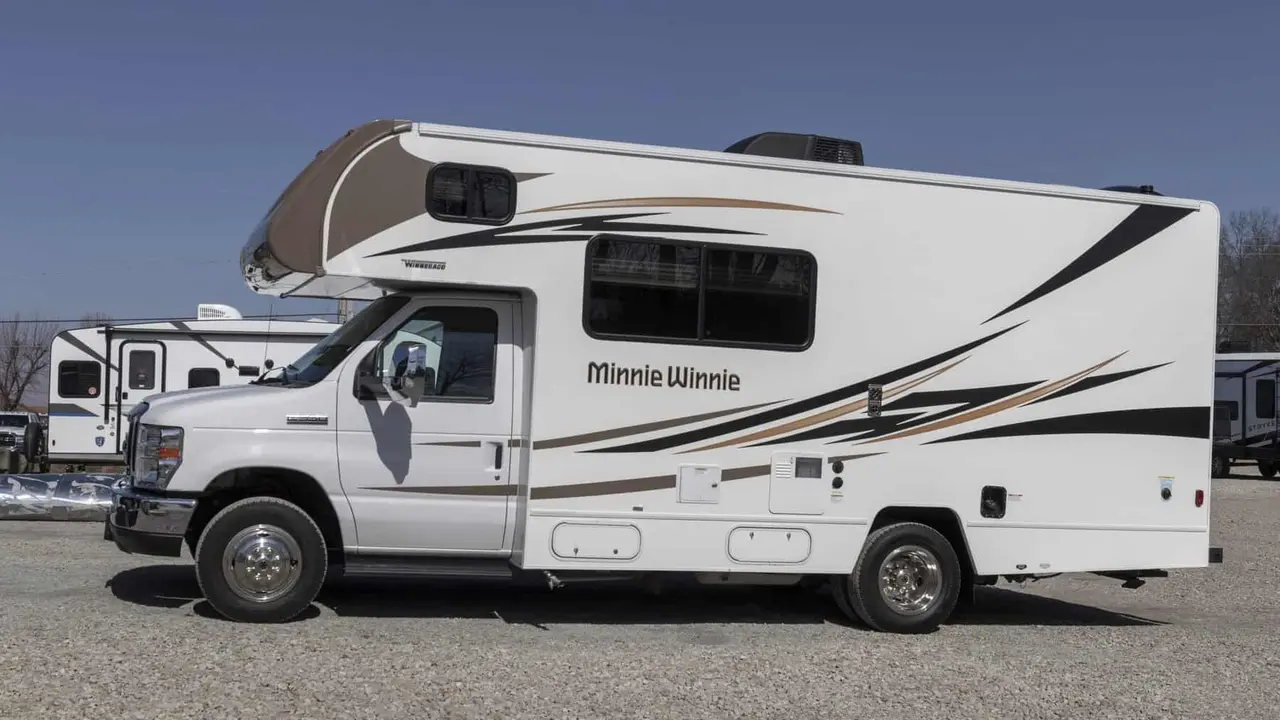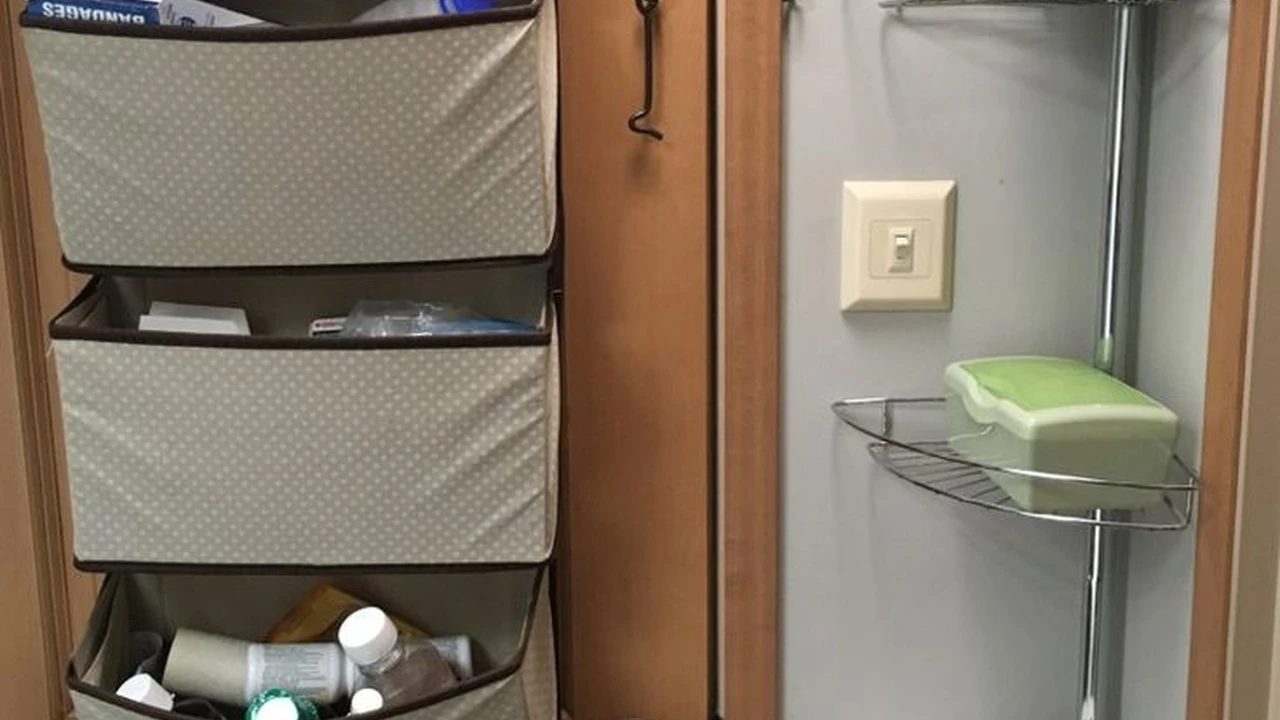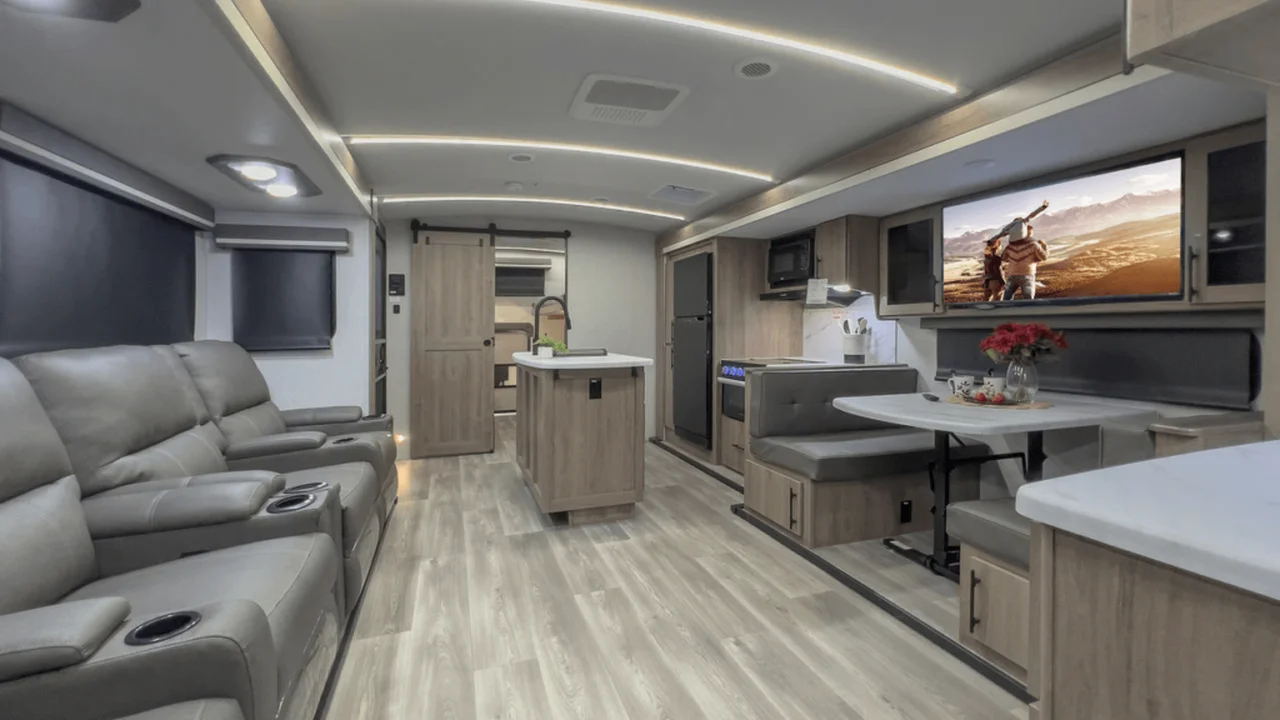5 RV Brands Known for Their Quality and Reliability

Choosing the right RV can feel overwhelming with so many options available. This comprehensive guide dives deep into the different RV types exploring their unique features pros cons ideal use cases and pricing to help you make an informed decision and find the perfect RV for your adventures.
Understanding the RV Landscape A Comprehensive RV Type Overview
Before we delve into specific recommendations lets paint a broad picture of the RV world. RVs also known as recreational vehicles come in a variety of shapes sizes and functionalities each catering to different travel styles budgets and needs. Understanding these fundamental differences is crucial for narrowing down your choices.
Class A RVs The Luxury Motorhomes
Class A RVs are the behemoths of the RV world. Built on a commercial bus or truck chassis they offer the most luxurious and spacious living experience. These motorhomes typically range from 26 to 45 feet in length and feature all the amenities of a small apartment including a fully equipped kitchen bathroom living area and separate bedroom.
Class A RV Key Features and Benefits
- Spacious Living Area: Ample room for relaxing entertaining and extended stays.
- Full-Sized Appliances: Expect residential-style refrigerators ovens stoves and even dishwashers.
- Luxury Amenities: Many Class A RVs feature high-end finishes like leather upholstery hardwood cabinets and entertainment systems.
- Ample Storage: Large storage bays provide plenty of room for gear and supplies.
- Self-Contained: Fully equipped with water tanks holding tanks and generators for off-grid camping.
Class A RV Drawbacks
- High Cost: Class A RVs are the most expensive type of RV ranging from $150000 to over $1 million.
- Fuel Consumption: Due to their size and weight Class A RVs have poor fuel economy.
- Maneuverability: Navigating narrow roads and tight campsites can be challenging.
- Maintenance Costs: Repairs and maintenance can be expensive due to the complexity of the systems.
Ideal Use Cases for Class A RVs
Class A RVs are ideal for full-time RVers families who need ample space and those who prioritize luxury and comfort. They are also a good choice for long-distance travel and extended stays at RV resorts.
Class A RV Recommended Models
- Newmar Dutch Star: Known for its quality craftsmanship and luxurious features.
- Tiffin Allegro Bus: A popular choice for full-time RVers offering a comfortable and well-equipped living space.
- Winnebago Adventurer: A more affordable option that still offers a good balance of features and value.
Class B RVs The Camper Vans
Class B RVs also known as camper vans are the most compact and versatile type of RV. Built on a van chassis they are easy to drive and park making them ideal for solo travelers couples and those who prefer to explore off the beaten path.
Class B RV Key Features and Benefits
- Easy to Drive and Park: Their compact size allows for easy maneuverability in urban areas and tight campsites.
- Fuel Efficiency: Class B RVs typically have better fuel economy than larger RVs.
- Versatility: Can be used as a daily driver as well as a recreational vehicle.
- Off-Grid Capability: Many Class B RVs are equipped with solar panels and generators for boondocking.
- Stealth Camping: Their unassuming appearance allows for discreet camping in urban areas.
Class B RV Drawbacks
- Limited Space: Living space is confined and storage is limited.
- Smaller Bathrooms: Bathrooms are typically compact and may include a wet bath (shower and toilet in the same space).
- Higher Price per Square Foot: Class B RVs can be expensive considering their size.
Ideal Use Cases for Class B RVs
Class B RVs are perfect for solo travelers couples weekend getaways and those who prioritize mobility and fuel efficiency. They are also a good choice for exploring national parks and other scenic areas.
Class B RV Recommended Models
- Winnebago Revel: A popular off-road camper van with a rugged design and all-wheel drive.
- Airstream Interstate: A luxurious camper van with a sleek design and high-end amenities.
- Roadtrek Zion: A versatile camper van with a comfortable living space and ample storage.
Class C RVs The In-Between Option
Class C RVs strike a balance between the spaciousness of Class A RVs and the maneuverability of Class B RVs. Built on a cutaway van chassis they feature a distinctive cab-over bunk area and offer a comfortable living space for families and small groups.
Class C RV Key Features and Benefits
- More Living Space than Class B: Offers a separate sleeping area and more room for relaxing.
- Affordable Price Point: Generally less expensive than Class A RVs.
- Easier to Drive than Class A: More manageable than larger motorhomes.
- Family-Friendly Layouts: Many models feature bunk beds and dinettes that convert into beds.
- Good Storage Capacity: Provides ample storage for gear and supplies.
Class C RV Drawbacks
- Fuel Economy: Not as fuel-efficient as Class B RVs.
- Cab-Over Bunk: Can be cramped and difficult to access for some people.
- Maneuverability: More challenging to navigate than Class B RVs in tight spaces.
Ideal Use Cases for Class C RVs
Class C RVs are ideal for families small groups and those who want a comfortable and affordable RV for weekend trips and longer vacations. They are also a good choice for exploring national parks and visiting different destinations.
Class C RV Recommended Models
- Thor Chateau: A popular Class C RV with a variety of floorplans and features.
- Winnebago View: A well-equipped Class C RV with a sleek design and comfortable living space.
- Jayco Redhawk: A reliable Class C RV with a good reputation for quality and value.
Travel Trailers The Towable Option
Travel trailers are towed behind a truck or SUV and offer a wide range of sizes floorplans and features. They are a popular choice for families couples and those who want a versatile and affordable RV.
Travel Trailer Key Features and Benefits
- Affordable: Generally less expensive than motorhomes.
- Versatile: Can be towed by a variety of vehicles.
- Wide Range of Floorplans: Available in various layouts to suit different needs.
- Separation of Tow Vehicle: Allows for independent travel once the trailer is set up at the campsite.
- Ample Storage: Many travel trailers offer plenty of storage space.
Travel Trailer Drawbacks
- Requires Tow Vehicle: Need a truck or SUV with sufficient towing capacity.
- Difficult to Maneuver: Backing up and navigating in tight spaces can be challenging.
- Setup and Takedown: Requires more effort than motorhomes.
- Storage: Requires a separate storage space when not in use.
Ideal Use Cases for Travel Trailers
Travel trailers are ideal for families couples and those who want an affordable and versatile RV for weekend trips longer vacations and seasonal camping.
Travel Trailer Recommended Models
- Airstream Flying Cloud: An iconic travel trailer with a classic design and high-quality construction.
- Grand Design Reflection: A popular travel trailer with a luxurious interior and a wide range of features.
- Forest River Flagstaff: A more affordable option that still offers a good balance of features and value.
Fifth Wheel Trailers The Luxurious Towables
Fifth wheel trailers are similar to travel trailers but are attached to the tow vehicle using a special hitch in the bed of a pickup truck. This connection provides greater stability and allows for larger floorplans and more luxurious features.
Fifth Wheel Trailer Key Features and Benefits
- More Stable Towing: The fifth wheel hitch provides a more secure and stable connection.
- Larger Floorplans: Offers more living space than travel trailers.
- Luxurious Amenities: Often feature high-end appliances and finishes.
- Ample Storage: Provides plenty of storage space for gear and supplies.
Fifth Wheel Trailer Drawbacks
- Requires Pickup Truck: Need a heavy-duty pickup truck with a fifth wheel hitch.
- Difficult to Maneuver: Backing up and navigating in tight spaces can be challenging.
- High Cost: Generally more expensive than travel trailers.
- Storage: Requires a separate storage space when not in use.
Ideal Use Cases for Fifth Wheel Trailers
Fifth wheel trailers are ideal for full-time RVers families who need ample space and those who prioritize comfort and luxury. They are also a good choice for long-distance travel and extended stays at RV resorts.
Fifth Wheel Trailer Recommended Models
- Grand Design Solitude: A luxurious fifth wheel trailer with a spacious interior and a wide range of features.
- Keystone Montana: A popular fifth wheel trailer with a good reputation for quality and value.
- Alliance Paradigm: A newer brand that's quickly gaining popularity for its innovative designs and high-end features.
Pop-Up Campers The Lightweight Option
Pop-up campers also known as folding trailers are lightweight and compact trailers that can be easily towed by most vehicles. They feature canvas or vinyl sides that fold out to create a sleeping and living area.
Pop-Up Camper Key Features and Benefits
- Lightweight and Easy to Tow: Can be towed by most cars and SUVs.
- Affordable: The least expensive type of RV.
- Compact Storage: Folds down for easy storage.
- Close to Nature: Canvas or vinyl sides provide a more immersive camping experience.
Pop-Up Camper Drawbacks
- Limited Space: Living space is confined and storage is limited.
- Canvas Sides: Offer limited insulation and privacy.
- Setup and Takedown: Requires more effort than motorhomes.
- Vulnerable to Weather: Not suitable for camping in harsh weather conditions.
Ideal Use Cases for Pop-Up Campers
Pop-up campers are ideal for budget-conscious campers weekend getaways and those who prefer a more rustic camping experience.
Pop-Up Camper Recommended Models
- Forest River Rockwood Freedom: A popular pop-up camper with a variety of floorplans and features.
- Coachmen Clipper: A lightweight and affordable pop-up camper.
- Aliner Ascape: A unique A-frame pop-up camper that's easy to set up and tow.
RV Buying Considerations Essential Factors to Evaluate
Now that we've explored the different RV types let's discuss some essential factors to consider before making a purchase. These considerations will help you narrow down your choices and find the perfect RV for your specific needs and travel style.
Budget Determining Your RV Affordability
Your budget is the most important factor to consider when buying an RV. RVs can range from a few thousand dollars for a used pop-up camper to over a million dollars for a luxury Class A motorhome. Determine how much you can comfortably afford to spend on an RV including the cost of the RV insurance registration maintenance and fuel. Also consider financing options and down payment requirements.
Travel Style Defining Your RV Usage
How do you plan to use your RV? Will you be using it for weekend getaways longer vacations full-time living or a combination of these? Understanding your travel style will help you determine the size layout and features you need in an RV. For example if you plan to do a lot of boondocking you'll need an RV with a large water tank solar panels and a generator.
Sleeping Capacity Accommodating Your Travel Companions
How many people will be traveling with you in the RV? Make sure the RV has enough sleeping space for everyone including adults and children. Consider the different sleeping options available such as beds bunk beds dinettes that convert into beds and sofas that convert into beds.
Storage Needs Maximizing Your RV Space
How much stuff do you need to bring with you on your RV trips? Consider your clothing food camping gear and other essentials. Make sure the RV has enough storage space for all your belongings. Look for RVs with large storage bays cabinets and closets.
Towing Capacity Ensuring Safe Travel
If you're planning to tow a travel trailer or fifth wheel trailer you need to make sure your tow vehicle has sufficient towing capacity. Check the tow vehicle's owner's manual for the maximum towing capacity and make sure the trailer's weight is within that limit. Also consider the payload capacity of the tow vehicle which includes the weight of passengers cargo and the trailer's tongue weight.
RV Features and Amenities Prioritizing Your Comfort
What features and amenities are important to you in an RV? Consider the kitchen appliances bathroom fixtures entertainment systems and other features. Do you need a fully equipped kitchen with a residential-style refrigerator oven and microwave? Do you want a luxurious bathroom with a shower and toilet? Do you need a state-of-the-art entertainment system with a TV DVD player and sound system?
New vs Used RV Weighing the Options
Should you buy a new or used RV? New RVs offer the latest features and technology and come with a warranty. However they are also more expensive. Used RVs are more affordable but may require more maintenance and repairs. Consider the pros and cons of each option before making a decision.
RV Inspection Ensuring a Sound Investment
Before buying an RV it's important to have it inspected by a qualified RV inspector. An RV inspector can identify any potential problems with the RV such as leaks structural damage and mechanical issues. This can help you avoid costly repairs down the road.
RV Financing Options Navigating the Purchase Process
Financing an RV is similar to financing a car or a house. You'll need to apply for a loan and make monthly payments. Here are some financing options to consider.
RV Loans Securing Funding for Your Purchase
RV loans are specifically designed for financing RV purchases. They typically have longer terms than car loans which can help lower your monthly payments. You can get an RV loan from a bank credit union or RV dealer.
Personal Loans An Alternative Funding Source
Personal loans can also be used to finance an RV purchase. However they typically have higher interest rates than RV loans. You can get a personal loan from a bank credit union or online lender.
Home Equity Loans Leveraging Your Home's Value
Home equity loans allow you to borrow money against the equity in your home. They typically have lower interest rates than RV loans and personal loans. However you risk losing your home if you fail to make payments.
RV Dealer Financing Convenience and Options
RV dealers often offer financing options to their customers. This can be a convenient way to finance your RV purchase but it's important to compare the terms and interest rates with other lenders.
RV Insurance Protecting Your Investment on the Road
RV insurance is essential for protecting your investment on the road. It can cover damage to your RV liability for accidents and other losses. Here are some types of RV insurance to consider.
Collision Coverage Repairing Your RV After an Accident
Collision coverage pays for damage to your RV if it's involved in an accident regardless of who is at fault.
Comprehensive Coverage Protecting Against Other Perils
Comprehensive coverage pays for damage to your RV caused by events other than collisions such as theft vandalism fire and natural disasters.
Liability Coverage Protecting You From Lawsuits
Liability coverage pays for bodily injury and property damage that you cause to others in an accident.
Uninsured/Underinsured Motorist Coverage Ensuring Protection Against Negligent Drivers
Uninsured/underinsured motorist coverage pays for your injuries and damages if you're involved in an accident with an uninsured or underinsured driver.
Roadside Assistance Coverage Providing On-the-Road Support
Roadside assistance coverage provides assistance if you experience a breakdown on the road such as towing jump starts and tire changes.
RV Maintenance Tips Keeping Your RV in Top Condition
Regular maintenance is essential for keeping your RV in top condition and preventing costly repairs. Here are some RV maintenance tips.
Regular Inspections Identifying Potential Problems Early
Inspect your RV regularly for any signs of leaks damage or wear and tear. Pay attention to the roof tires brakes and other critical components.
Tire Maintenance Ensuring Safe Travels
Check your tire pressure regularly and inflate them to the recommended pressure. Rotate your tires every 6000-8000 miles to ensure even wear. Replace your tires every 5-7 years regardless of mileage.
Battery Maintenance Extending Battery Life
Keep your batteries clean and properly charged. Check the electrolyte levels regularly and add distilled water as needed. Store your batteries in a cool dry place during the off-season.
Roof Maintenance Preventing Leaks
Inspect your RV roof regularly for any signs of damage or leaks. Clean the roof with a mild detergent and water. Apply a roof sealant every few years to protect it from the elements.
Appliance Maintenance Keeping Everything Running Smoothly
Clean your RV appliances regularly and follow the manufacturer's instructions for maintenance. Have your propane system inspected annually by a qualified technician.
Choosing the Right RV Dealer Finding a Reliable Partner
Choosing the right RV dealer is crucial for a positive buying experience. Here are some tips for finding a reliable RV dealer.
Reputation and Reviews Assessing Dealer Performance
Check the dealer's reputation and read online reviews from other customers. Look for dealers with a good track record of customer satisfaction.
Inventory and Selection Finding the Right RV Model
Choose a dealer with a wide selection of RVs to choose from. This will give you more options and increase your chances of finding the perfect RV for your needs.
Service and Support Ensuring Post-Purchase Assistance
Choose a dealer with a good service department and a knowledgeable staff. This will ensure that you can get your RV serviced and repaired quickly and efficiently.
Financing Options Exploring Payment Plans
Choose a dealer that offers a variety of financing options. This will give you more flexibility and help you find the best loan for your needs.
RV Camping Destinations Exploring Scenic Locations
Once you've purchased your RV it's time to start planning your camping trips. Here are some popular RV camping destinations.
National Parks Immersing Yourself in Nature's Beauty
National parks offer some of the most scenic and diverse camping destinations in the United States. From the Grand Canyon to Yellowstone there's a national park for everyone.
State Parks Discovering Hidden Gems
State parks offer a more affordable and less crowded alternative to national parks. They often feature beautiful scenery hiking trails and other recreational activities.
Private RV Parks Enjoying Amenities and Convenience
Private RV parks offer a variety of amenities and conveniences such as swimming pools hot tubs laundry facilities and Wi-Fi. They are a good choice for those who want a more comfortable and convenient camping experience.
Boondocking Experiencing Off-Grid Adventures
Boondocking also known as dry camping is camping without hookups such as water electricity and sewer. It's a great way to experience nature and save money on camping fees.
:max_bytes(150000):strip_icc()/277019-baked-pork-chops-with-cream-of-mushroom-soup-DDMFS-beauty-4x3-BG-7505-5762b731cf30447d9cbbbbbf387beafa.jpg)





